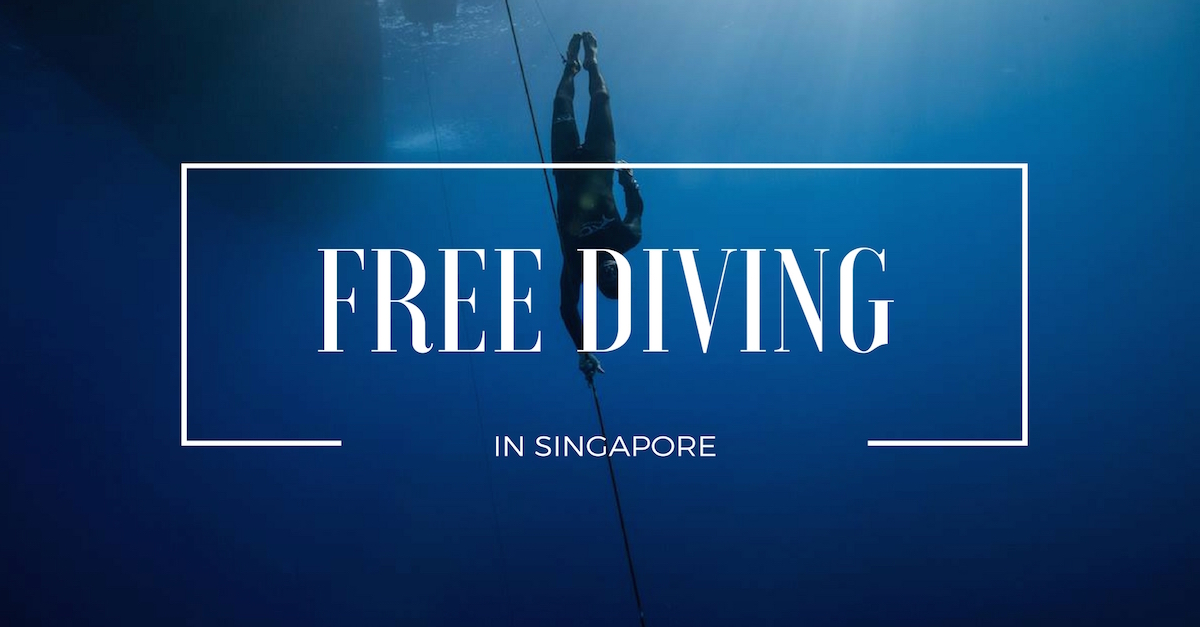A “free” diving course? This sounds too good to be true – and it is. The “free” in free diving (or freediving) actually refers to diving without standard scuba gear. Instead of having an oxygen tank strapped to your back, free divers simply hold their breaths and explore the depths of the ocean with minimal equipment! Yes, it is actually possible!
One of our writers checked it out! Here is his experience:
This “minimal diving” concept appealed to the practical and penny-pinching side of me: diving with less scuba gear would mean that I get to save on equipment rental! While there might be some incentive in this, it was definitely not the main motivating factor that pushed me to try this elusive (and borderline sceptical) sport.
Free Diving v.s. Yoga
It was my love for yoga – not the vast blue ocean or a burning passion for diving – that drew me to this sport. As I began to read up more on free diving, I became increasingly fascinated by the parallels between the two disciplines.
For example, proper breathing techniques are fundamental in both yoga and free diving. Body awareness is something yogis are always striving to improve on. This is also equally important to free divers who need to relax their muscles and hold their breaths underwater for a long period of time.
I would say that certain parts of my freediving experience were extremely similar to meditation in yoga.

AIDA 1 Freediver Course
Convinced that this sport has sufficiently piqued my interest, I signed up for a free diving course with Singapore Freedivers. But before I was even allowed in the pool for training, I had to sit through a two-hour lecture by Bernard Wong, an instructor at the diving centre.
Sitting through a lecture on safety procedures and free diving theories gave me shuddering flashbacks of my university days (just kidding). But it was interesting to learn more about the history of free diving. It was first practised by people who engaged in spearfishing!

Static Apnea
On to the practical segment – we started off with Static Apnea, a fancy term that essentially refers to holding your breath underwater without moving. For this exercise, each of us had to pair up and line up at the edge of the pool. One would submerge his or her head into the water, while the other reinforced safety.
Initially, I thought I could only hold my breath for no more than a minute. However, I ended up clocking 2 mins 15 secs on my first try. It was truly amazing how breathing and relaxation techniques can really improve one’s breath-holding ability!
By my 5th (and final) try, I was able to remain underwater for a whopping 2 mins 58 secs!

While I did enjoy this almost meditative part of free diving, my buddy, a water polo player, did not share the same sentiments.
“Wah lao, this must be the only sport where you can get good from doing nothing,” he had said. Although he does have a valid point, a lot of what we do goes on internally.
When I was underwater, I felt like I had a heightened awareness of my body as I actively tried to relax every muscle. When the urge to surface for air intensified, I willed myself to refrain from surfacing, training my underwater resistance.
Dynamic Apnea
The aim of Dynamic Apnea is to swim as far as we can in a single breath. Though I did perform slightly better than my buddy at Static Apnea (his timing was about 2 min 40 secs), he beat me hands down at Dynamic Apnea.
My buddy managed to swim 50m on his first try while I barely made it to the 30m mark. Although the activity was still primarily on breath-holding, I found it significantly harder than Static Apnea.
For one, I had difficulty controlling my buoyancy. I was either constantly hitting the floor of the pool, or bobbing up to the surface. As I swam deeper down the pool, the pressure build-up in my ears also began to hinder my movement.
Gradually, with some help from my instructor Bernard, I managed to overcome these obstacles and swam 50m by my final try.
Freediving in Open Waters
Though I did not get to dive in open waters on this half day course, I appreciated that we were able to undergo basic free diving training in a safe and controlled pool environment. I doubt I would push myself as hard or remained calm enough to work on my breathing techniques if we were to undergo training in choppy, open waters.
Now that I have completed the beginner course, I am more than ready to head out to the ocean and descend 15m underwater without any bulky scuba gear.
What a liberating experience it will be! Free diving may seem daunting at first, but it is definitely an activity that will push you out of your comfort zone. It also rewards you with a surreal underwater experience.

Singapore Freedivers
Tel: 9876 7171
Email: [email protected]
Website: http://www.singaporefreedivers.com
(the next Beginner Freediving Course is on 4 Sept)
(Header image credit: aas)
Also, read Bounce Your Way To A Stronger Core And Toned Muscles – Trust Us, It’s SUPER Fun







